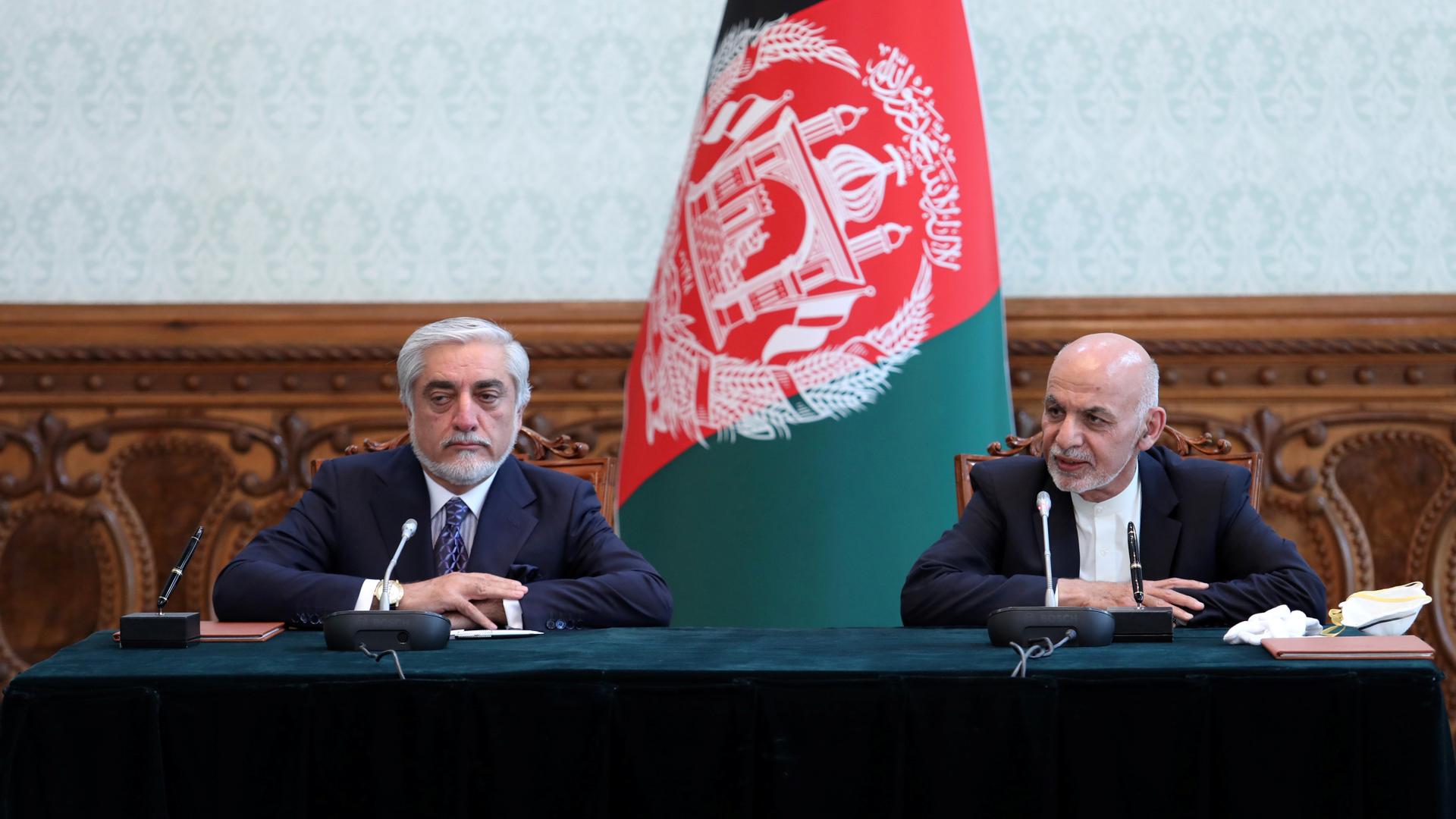Eradicating terror from Afghanistan remains the top priority, but all sides must now agree on methods.
The decision by Ashraf Ghani and Abdullah Abdullah to sign a power-sharing agreement is a positive step, at the right time. It is an Afghan, rather than an American decision, and the first indication of that much-needed national consensus to stand up to the Taliban and other terror groups operating in Afghanistan.
It is built on the back of a gruesome attack last week on a hospital, where mothers and their newborns were killed – the images of the event have fuelled unparalleled anger, as well as a sense of unity unseen in the country.
The power-sharing deal means that Ashraf Ghani would stay as president while both men would have an equal number of ministers and Dr Abdullah would lead the peace talks with the Taliban, should they get underway.
New on the scene is General Abdul Rashid Dostum who gets the top military post as the marshal of the armed forces. He was the first vice president to Ghani but then turned an ally of Dr Abdullah in recent elections.
He has survived several Taliban attacks, two of them over the past two years and has remained on their hit list.
Dostum gets much of his tarnished human rights record for his treatment of Taliban prisoners in 2001 and his relentless fight against the group during the 90s when he was also considered one of the top military figures of Afghanistan.
This new power-sharing formation also includes another sworn enemy of the Taliban, Ghani’s vice-president, Amrullah Saleh. He survived a major Taliban attack on his party headquarters last July in which at least 20 of his colleagues were killed.
Despite that, and withstanding much criticism, he joined Ashraf Ghani as vice president and was prepared to take part in the peace negotiations.
Intense disagreements have characterised the relationships between all stakeholders. Events that took place on the morning of 12 May, however, when three militants stormed a hospital in Kabul shooting new mothers and their babies, has seen a change take place in Afghanistan.
At least 24 people were killed inside the hospital — mothers, babies, and medical workers among them.
Soon after, in the province of Nangarhar, a suicide bomber walked in on the funeral for a local police commander and proceeded to detonate explosives in the vicinity of the corpse. The explosion killed at least 25 and wounded 68 others.
Twitter exploded with outrage over the gruesome killings.
The hashtag #killedmotherswithbabies and #Kabulhospitalattack went viral almost instantly. It became known as the “end of humanity in Afghanistan”.
Room for optimism?
For the first time, it seemed all Afghans were united in sorrow and rage, almost all blaming the Taliban and the architect of the peace deal Zalmay Khalilzad, the US Special Representative for Afghanistan Reconciliation.
Khalilzad had condemned the attack yet was accused of trying to exonerate the Taliban by shifting the blame to the Islamic State group (ISIS-K or Daesh). Most commentators both inside, and outside, refused to accept his argument.
Michael Rubin in the Washington Examiner accused Khalilzad of setting a dangerous precedent and only being motivated by salvaging the US peace deal with the Taliban.
On Monday, praise for the new power-sharing agreement was almost universal while concerns about who holds the upper hand and how far ethnic divisions might damage the decision-making process, were expressed.
Yet, the main dilemma for the new set up is that Afghanistan still needs the military support of the United States, especially since Ghani ordered his forces to relaunch offensive operations against the Taliban after the attacks.
The Taliban responded by calling the move a “declaration of war.”
While US Secretary of State Mike Pompeo congratulated Ghani and Abdullah “for reaching an agreement on inclusive governance for Afghanistan,” he reiterated that the priority for the United States remains a political settlement to end the conflict.
This morning, security chiefs in Kabul gave their justification for remaining in “offensive mode”.
In a press conference they said the US-Taliban deal raised hopes for peace but “the reduction in violence was not implemented by the group”. They illustrated the ties between the Taliban and other terrorist groups.
The options for seeking alternative military support are very limited. Afghanistan has learned over the past forty years that it cannot rely on the Americans or the Russians to protect itself, while its distrust of both Pakistan and Iran remains as strong as ever.
Too much optimism may be premature. But the possibility of the new power-sharing proving more effective than the US-brokered NUG of 2014, is far higher as politicians remain resolute in their determination to rid Afghanistan of terror.
There are two key factors that need special attention.
First that the power-sharing is structured to wither ethnic divisions, and second, that any peace talks must now prioritise how the new administration plans to dismantle terror infrastructure within Afghanistan.
Author: Massoumeh Torfeh
Dr. Massoumeh Torfeh is a Research Associate at the London School of Economics and Political Science specialising in Iran and Afghanistan. Formerly she was a BBC journalist and UN spokesperson and director of communication.
Source










Discussion about this post